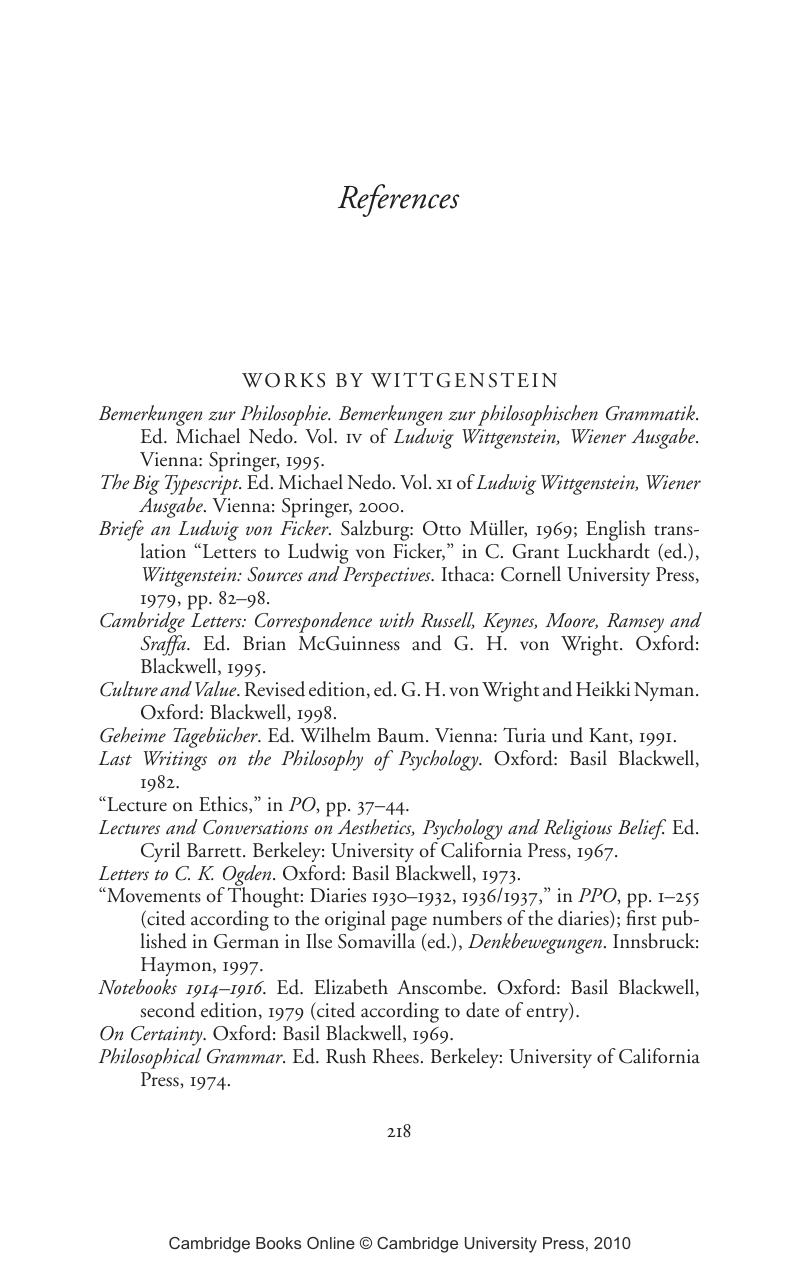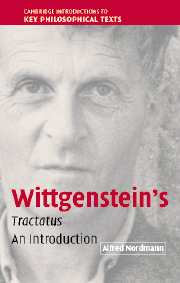Book contents
- Frontmatter
- Contents
- Preface
- List of abbreviations of works by Wittgenstein
- Introduction: Wittgenstein's provocation
- 1 Critical philosophy
- 2 The argument
- 3 Thought experiments
- 4 Tense and mood
- 5 The senses of sense
- Conclusion: a sense of familiarity
- References
- Index of names and subjects
- Index of passages
- References
References
Published online by Cambridge University Press: 03 February 2010
- Frontmatter
- Contents
- Preface
- List of abbreviations of works by Wittgenstein
- Introduction: Wittgenstein's provocation
- 1 Critical philosophy
- 2 The argument
- 3 Thought experiments
- 4 Tense and mood
- 5 The senses of sense
- Conclusion: a sense of familiarity
- References
- Index of names and subjects
- Index of passages
- References
Summary

- Type
- Chapter
- Information
- Wittgenstein's TractatusAn Introduction, pp. 218 - 227Publisher: Cambridge University PressPrint publication year: 2005



